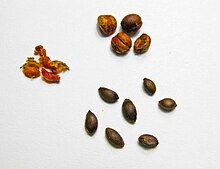The posts on this blog are the personal opinions and experiences of the respective posters and are not endorsed by anyone else.
None of the statements herein have been evaluated by the FDA. Furthermore, none of the statements on this web site should be construed as dispensing medical advise, or making claims regarding the cure of or prevention of diseases. It is the individual’s responsibility to your body and use common sense when using this or any other, similar, product.
You should consult a licensed health care professional before starting any supplement, dietary, or exercise program, especially if you are pregnant or have any pre-existing liver, psychological, or medical conditions.
Furthermore, the FDA sucks. They are the government arm of Big Pharma. They sued Diamond Walnuts for linking to peer reviewed scientific studies on the benefits of walnuts. http://www.organicconsumers.org/articles/article_26095.cfm.
Thanks to my friend Prince Philip for the above link!

